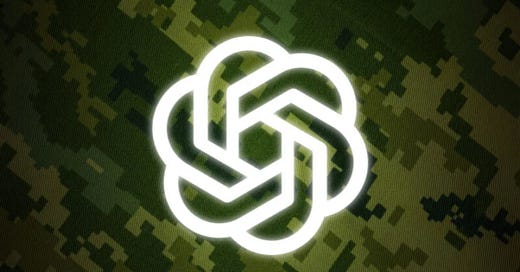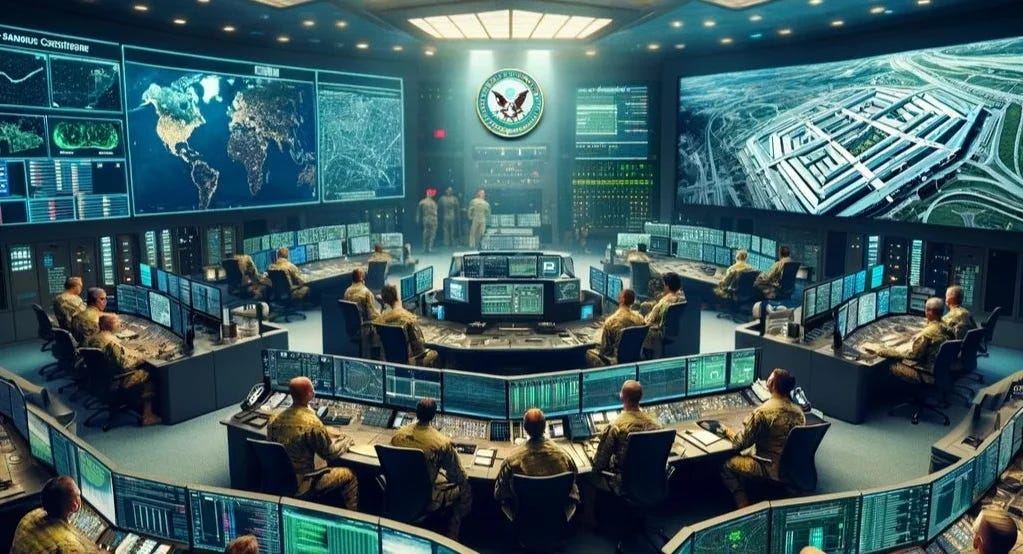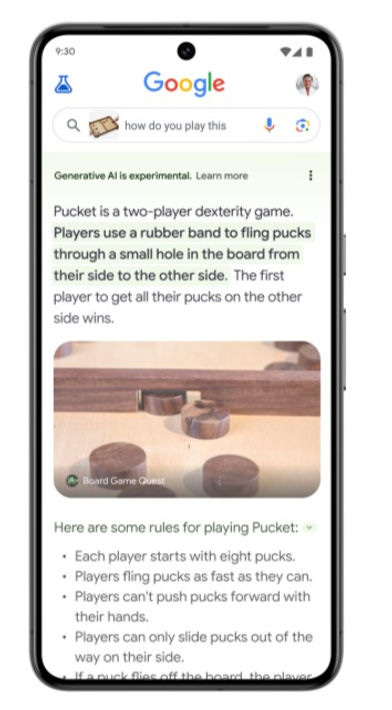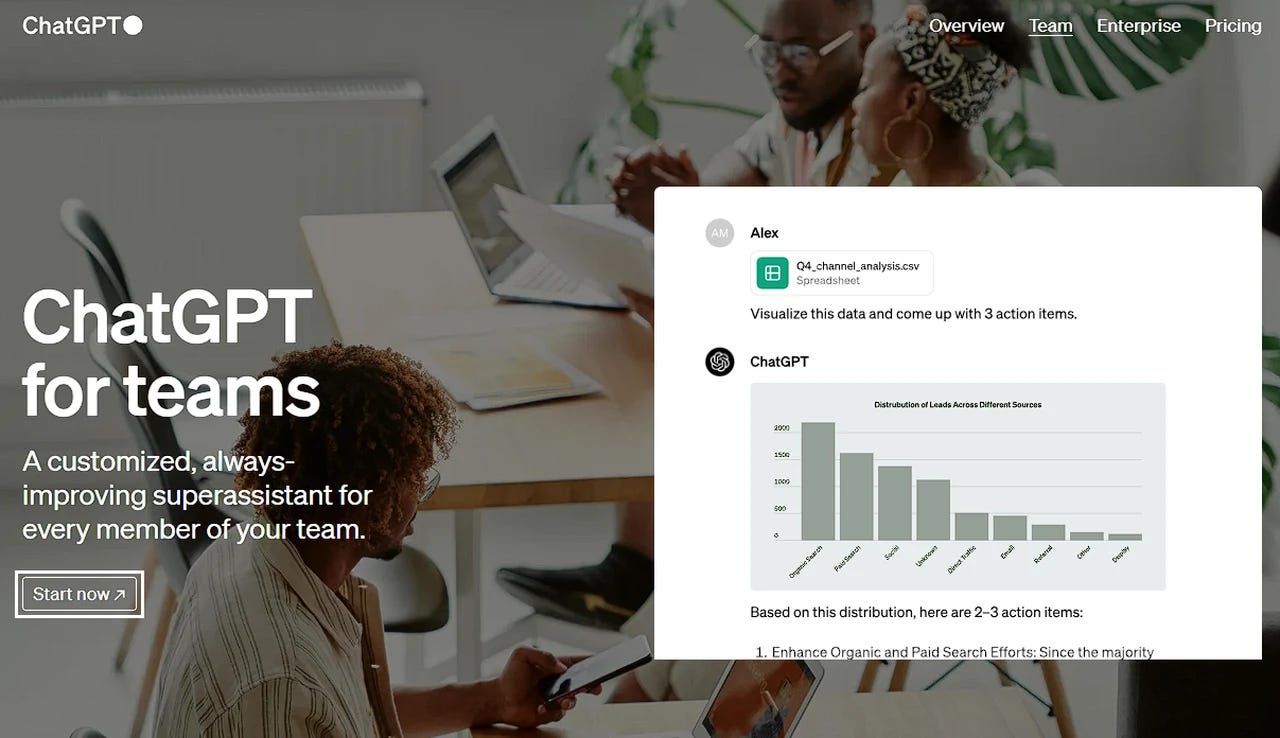Open AI: Our priority is the protection of humanity, but let’s teach the robots Sun Tzu just in case. (Updates for Week of 1.15.2024)
This week in AI: Major OpenAI policy (and access) changes especially around military usage, a little bit of product movement at Google, and RunwayML’s brush tool that brings images to life.
Advancement #1: OpenAI quietly deletes ban on military use of their technology from its usage policies.
At the start of this week, it was reported that OpenAI removed a clause from their terms of service that previously prohibited the use of their technology for military purposes, weapons development, and warfare. This change, effective from January 10, was made without a formal announcement.
OpenAI spokesperson Niko Felix explained that this was part of a broader policy rewrite to clarify principles for users and companies, especially with the rise of custom GPTs. Felix clarified via email that the use of OpenAI technology to develop or use weapons, harm others, destroy property, or engage in unauthorized activities violating service or system security remains prohibited. However, he also indicated OpenAI's interest in national security projects aligning with the company's mission, including cybersecurity tools and collaboration with DARPA.
Initial Thoughts: Overall, it seems like this change is more opening the door for military collaboration rather than actually using it to develop weapons.
OpenAI is a US based company, and being based in the United States myself, I naturally default to assume use by our own military system. However, doesn’t the overall deletion of a ban on military usage simultaneously removes the ban on ANY country from collaborating with OpenAI as well? I could not find any explicit statements otherwise, and I would love some clarification on the matter.
Advancement #2: OpenAI confirms collaboration with the Pentagon.
Also in the government realm, OpenAI confirmed this week at the World Economic Forum’s meeting in Davos that it is working with the Pentagon on a number of projects.
Primarily working with DARPA to create an open-sourced cybersecurity tool (interesting… I suppose), the team stated that they are also in early discussions on leveraging the technology to create a veteran suicide detection tool.
Initial Thoughts: Many people get confused on what GenAI can and cannot do.
In August 2023, I spoke at a developers' conference about GenAI infrastructure and mentioned the Department of Defense's new GenAI Task Force for defense applications at that time. I asked the 150 attendees to suggest how the DoD might use a tool like ChatGPT. Their ideas, like missile detection and mission success prediction, generally exceeded ChatGPT's capabilities as an LLM, which isn't suited for such tasks.
While an LLM's code generation ability makes cybersecurity projects viable, I'm skeptical about the extent of its use in a veteran suicide detection tool without integrating other AI technologies, likely from Microsoft. I expect these projects' requirements will evolve significantly, though I can't confirm this.
HIDDEN HEADLINE
Advancement #3: RunwayML launches the Multi Motion Brush inside its Gen-2 model to turn any text prompt or image into film.
RunwayML announced late last week that you can now animate any image or text prompt utilizing its Gen-2 model and Multi Motion Brush. A GenAI tool primarily, this new feature allows creators to control and animate multiple areas of an image to bring it to life, which offers a new level of creative freedom in visual storytelling. Users can easily apply different motions, speeds, or directions to specific parts of a video using simple brush strokes. This intuitive and powerful tool enables more dynamic, immersive, and expressive video content creation for the average user.
Initial Thoughts: This was the most exciting thing I’ve found in a while, and I was absolutely blown away by the demo. I haven’t had the opportunity to play with it myself yet, but I plan to dig in a little deeper in the coming weeks on just how good it is. There is chatter that it may be the best image to video tool yet to date.
Advancement #4: Google launches AI-powered visual search capabilities.
Google has launched the new AI-powered feature for Google Lens, enhancing its visual search capabilities. Users can now point their camera or upload a photo or screenshot to Google Lens and ask a question about the visual content. The update builds on Lens' multi-search feature. Unlike before, where searches led to similar visual matches, the new AI-driven approach provides allegedly more insightful, AI-generated answers based on the visual queries. This advancement was first showcased several months ago, but not officially launched until now.
The new Google Lens feature allows users to gain specific information about objects through photos. For instance, if a user takes a photo of a plant and asks, "When do I water this?", the feature won't just show similar images, but will also identify the plant and provide tailored advice like watering frequency. Another example shows that a user could simply take a picture of a board game saying “how do I play this”?
Initial Thoughts: I remember seeing this feature commercial several months ago and thought it was already live, so I wasn't particularly impressed by it. If I were to categorize it, it seems pretty similar to me to ChatGPT+Vision, but it’s important to note it’s only available in the Google search app.
Advancement #5: OpenAI launches “Teams” subscription that aims to give better data protection access to smaller businesses.
OpenAI launched a new subscription tier called “Teams” to expand data protection access to more everyday users and smaller business operations. Priced at $25 per user per month (billed annually), the subscription level provides certain protections that it will not use any business data or conversations for training purposes.
Similar to Microsoft’s statement “your data remains your data” made earlier this year in regard to its OpenAI Azure Service (which was the main way corporations could access GPT/OpenAI while still protecting their data up until recently), OpenAI similarly stated that “you own and control your business data.”
ChatGPT Teams will include:
Access to GPT-4 with 32K context window
Tools like DALL·E 3, GPT-4 with Vision, Browsing, Advanced Data Analysis—with higher message caps
No training on your business data or conversations
Secure workspace for your team
Create and share custom GPTs with your workspace
Admin console for workspace and team management
Early access to new features and improvements
Initial Thoughts: There is a growing concern about the usage of data when accessing ChatGPT or any other LLM based model. Enterprise level solutions were the first to be offered, and this is a step in the right direction to extend those protections to the every day user.









